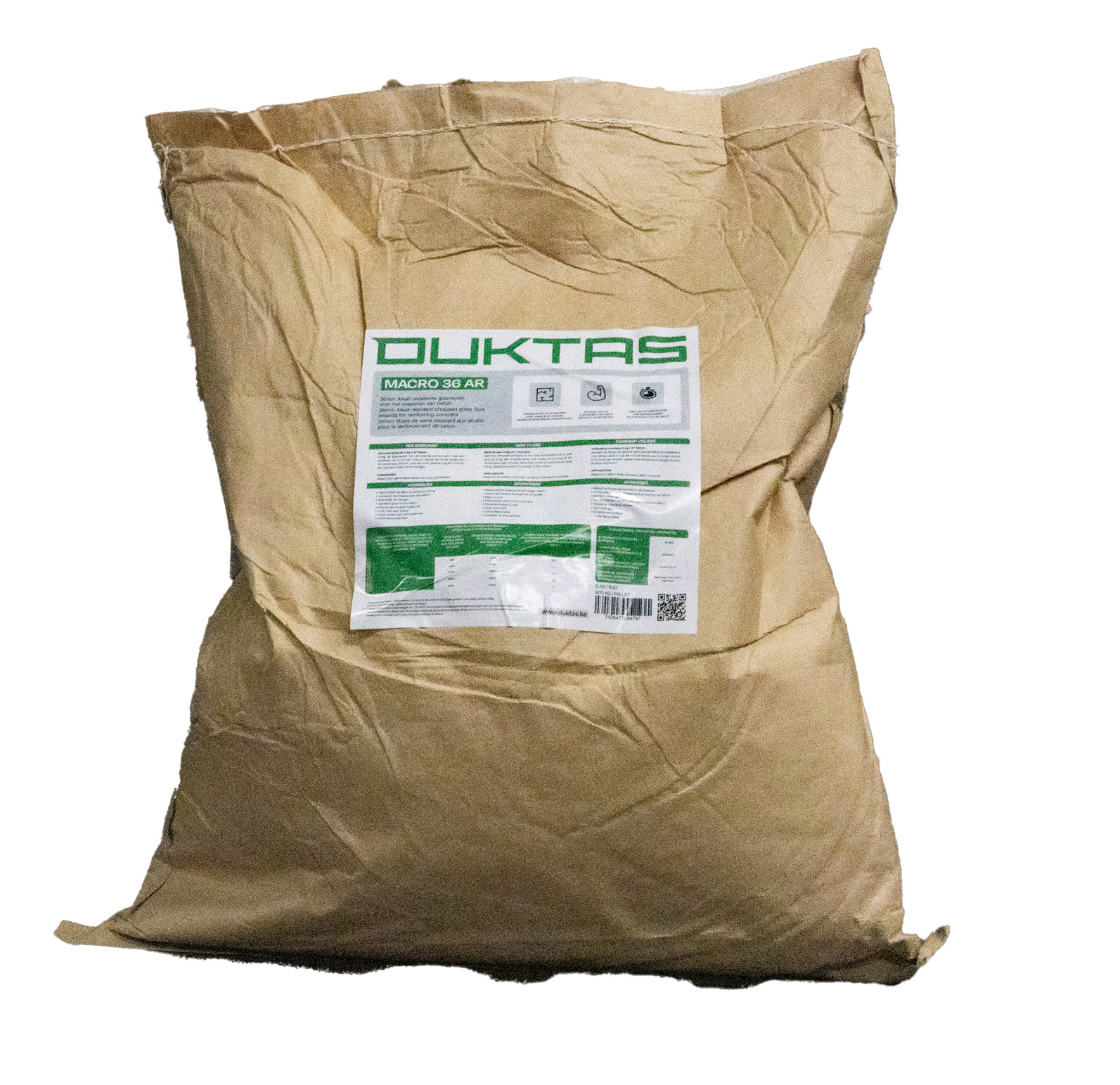Opt for Duktas glass fibers and make your concrete stronger and durable. Our high-quality, alkali-resistant fibers distribute evenly, prevent floating, and ensure an effortless smooth finish.
The tensile strength of Duktas glass fibers is twice as high as steel and three times as high as polypropylene. Thus, glass fibers offer the best resistance against cracking and breaking in concrete.


LESS CHANCE OF CRACKING

STRONGER CONCRETE

FASTER AND EASIER
Products

MICRO AR 12
Alkali-resistant micro glass fibers of 12 mm
- Reduces the chance of thermal and shrinkage cracks
Packaging: Bag of 600 gram or full pallet of 720kg

MIX 36-12
Mix of 5 kg Macro AR 36 and 600 g Micro AR 12 fibers
- To replace reinforcement nets
- Reduces the chance of thermal cracks, plastic cracks, and shrinkage cracks
Verpakking: Een combinatie van AR 36 en AR 12
BENEFITS FOR THE INSTALLER
- Lighter in transport
- You don't have to buy or store heavy and bulky steel nets
- Easier to use than steel nets
- Time-saving (no preparatory works)
- Less chance of accidents and damage
- Usually cheaper than reinforcing with steel nets
Voordelen van het gebruik van glasvezels
- Reduces the chance of crack formation
- Improves the tensile strength of concrete
- Easy to mix
- Distributes well in the concrete
- Fast and simple to use
- Does not float to the top
- Invisible at the surface
- 100% Recyclable
GET STARTED WITH OUR PRODUCTS
FREQUENTLY ASKED QUESTIONS
Can glass fibers replace reinforcement nets?
Yes, fiberglass reinforcement can indeed replace traditional steel reinforcement nets, especially for decorative applications. Fiberglass reinforcement has advantages such as resistance to corrosion and lightweight properties. However, it has a lower modulus of elasticity compared to steel, which means it may respond differently under certain loads.
It is crucial to consider the unique needs and technical requirements of your project when choosing the material for reinforcement. Sometimes combining fiberglass and steel can provide the optimal solution to achieve the required strength and durability.
Can glass fibers be used for structural applications?
Yes, but be cautious. For structural concrete applications, glass fibers can be used in some cases, but only if a study is done to determine the correct dosage.
Unlike steel fibers, glass fibers are less suitable as reinforcement for structural applications such as support columns.
What are the concrete applications where fiberglass reinforcement can and cannot be used?
Fiberglass reinforcement can be used without problems in floated concrete, polished concrete (terrazzo), printing concrete, bush hammered concrete, brushed concrete and sandblasted concrete.
For exposed aggregate concrete, it is not recommended to work with fiberglass reinforcements.
What are the drawbacks of synthetic fibers?
We strongly advise against using plastic fibers (also known as synthetic or plastic fibers) because concrete with plastic fibers cannot be recycled. Plastic fibers in concrete will break down into microplastics upon the breaking of the concrete, which can end up in waterways and eventually in the sea.
